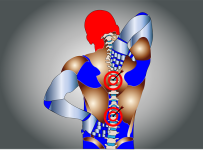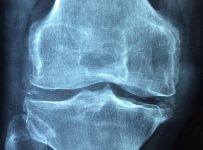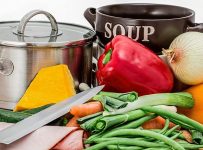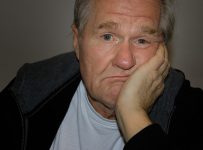As you age your natural ability to burn energy slows down considerably. Older people also usually have less muscle and body mass than when they were younger. Those 2 health characteristics, combined with a slower metabolism, create a diminished need for fuel. This means your protein and fat requirements as a senior are very different than they used to be.
It is critical for you to understand the dietary requirements and guidelines which lead to maximum health. Your individual situation is uniquely different than anyone else’s. However, the following recommendations give you a rough guideline of how much fat and protein you should be consuming on a daily basis.
How Much Protein Should a Senior Citizen Eat Each Day?
As a secondary source of energy when you don’t have enough fat and carbohydrates to draw from, healthy protein levels are especially important in senior citizens. According to the US Institute of Medicine’s Food and Nutrition Board, women over 50 years of age need to consider 46 grams of protein a day as the absolute minimum.
Men over 50 should try to get at least 56 g of protein in their daily diet. Remember, these are minimum recommendations. Your health and weight status will directly impact how much protein you should be eating.
Healthy fish like salmon and mackerel, lean meats like chicken, and healthy foods like eggs, nuts and beans all deliver high levels of protein. (Senior Protein Tip – you should consume at least 0.8 grams of daily protein for each kilogram (2.2 pounds) of body weight.)
How Much Fat Is Recommended for Seniors?
The key here is making sure you focus on the right kinds of fat. For example, trans fats are dangerous and deadly and need to be avoided entirely. However, essential fatty acids are absolutely required if you are going to enjoy a healthy life. Fat is calorie dense, at 9 calories per gram. So you definitely need to watch how much fat you ingest, no matter how old you are.
As a senior, 20% to 30% of your daily caloric intake should be fat.
After age 50 women should be consuming 1,600 to 2,200 calories a day, depending on their physical activity level. Men should eat 2,000 to 2,400 calories each day after age 50, again depending on how active they are. Using those calorie totals, women need between 320 and 660 grams of healthy fat each day. Men should aim for 400 to 720 grams of daily fat after age 50.
You want to limit saturated fats like those found in most animal foods. Focus on monounsaturated fats, which are found predominantly in plants. Polyunsaturated fats are found in fish like salmon, and they are healthy as well. Almonds, avocados, extra-virgin olive oil, flax seed, and walnuts are other foods that deliver healthy fats.














